The Motorola Edge 50 Pro deserves to sell truckloads. It has a Qualcomm SD7 Gen 3 processor, a 6.7” pOLED 1.7 billion colour screen, and a whopping big 125W 18-minute TurboPower charger inbox.
As we tested the device, we had nothing but praise for its svelte Edge curved screen design, USB-C 3.1 Gen 1 with Alt DP 1.4 (video/audio/data/charge) to an external screen, and we really like the camera setup. The Qualcomm modem has very strong reception for city, suburbs, regional and rural use.
But, and there is always one, the Qualcomm SD7 Gen 3 is an excellent System on a Chip (SoC), but it is only an average performer. At $999, buyers may expect more – at least an SD8 Gen 1 or 2. I kept comparing it with the Motorola ThinkPhone ($999 SD8 Gen 1), which outperformed this. The motoring analogy is that you expect a gutsy V6 but are getting a 4-cylinder turbo.
Does it matter? Not really, as Joe and Jane Average will look at the pretty Moonlight Pearl (real Italian pearl shell) or Luxe Lavender Vegan leather, and the decision will be made. It will only matter to gamers and power users who expect more.
Others in the Edge 50 series
Edge 50 Fusion $599
6.7” 2400 x 1080, 10-bit, 144Hz pOLED, Qualcomm SD7 Gen 2, 12/256GB, 68W TurboPower, 50+13MP rear camera and 32MP selfie. It should have good phone signal strength, and there are few compromises – a value winner.

Edge 50 Ultra $TBA and may not come to Australia
6.7” 2712 x 1220, 10-bit. 144Hz pOLED, Qualcomm SD8 Gen 3, 12/512GB, 125W TurboPower, 50+50+64MP (Telescope) and 50MP selfie. This premium phone will knock the Exynos-powered Samsung S24 and S24+ off their perch.

New review format
We are experimenting with our review format. Where we used to put all the raw data in tables at the end, we will now break them up and briefly comment on the various parts. Why? Readers who want to know more will paw over the tables. Readers who wish to see if it’s a good phone can just read the comments. Of course, we still have CyberShack’s’ View and rating explanation at the end – do make sure you read that.
We use Fail (below expectations), Pass (meets expectations) and Exceed (surpasses expectations or is the class leader) against many of the items below. We occasionally give a Pass(able) rating that is not as good as it should be and a Pass ‘+’ rating to show it is good but does not quite make it to Exceed. You can click on most images for an enlargement.
We are also tightening up on grading. From now on, Pass, for example, means meeting expectations for the price bracket. We consider a Pass mark to be 70+/100 with extra points added for class-leading and excellence.
Australian Review: Motorola Edge 50 Pro, 12/256GB, Dual SIM, Model XT2403-2
| Brand | Motorola |
| Model | Motorola Edge 50 Pro |
| Model Number | XT2403-2 |
| RAM/Storage Base | 12/256 |
| Price base | $999 |
| Warranty months | 24-months ACL |
| Tier | Upper mid-range processor with Edge benefits and pOLED screen. |
| Website | Product Page |
| From | Motorola online, Harvey Norman, Domayne, JB Hi-Fi, Bing Lee |
| Country of Origin | China |
| Company | It is owned by Lenovo (Est 1984) – a multinational technology company with its primary operational headquarters in Beijing and Morrisville, North Carolina. It is the world’s largest PC maker. It purchased Motorola Mobility from Google in 2014. Most of Lenovo’s smartphone business is now under the Motorola brand, with grand plans to become a ‘top five’ smartphone maker. |
| More | CyberShack Motorola news and reviews CyberShack smartphone news and reviews |
| Test date | 1-15 May 2024 |
| Ambient temp | 10-20° |
| Release | 45383 |
| Other models not for Australia (Don’t buy) | Motorola makes models for various markets that are not for Australian Telco networks nor carry an Australian warranty. Read Don’t buy a grey market smartphone |


First Impression – Pass+
Sadistic PR agencies tend to send me basic black – albeit that this uses vegan leather (Read What is vegan leather seen on some smartphones?). This also comes in genuine Italian mother-of-pearl and Luxe Lavender. Far more exciting!
It is a beauty anyway. Gently curved pOLED screen edges, no bezel, grippy vegan leather back that flows over the camera hump. It is nice in hand and has that je ne sais quoi (I know not what, but I like it) appeal.
It may be a black slab, but it has undeniable style.
Screen – Pass+
First, you should ask what the difference is between AMOLED and pOLED. Samsung has a copyright on AMOLED (Active Matrix Organic Light Emitting Diode), which essentially means a touch-enabled OLED screen on a glass or plastic base. pOLED is the same touch-enabled OLED on a plastic base made by LG and other companies. pOLED is used for curved edge screens (like the Motorola Edge 50 Pro) and flip/foldables.

They are both OLED technologies. pOLED is an attempt by phone manufacturers to get 10-bit/1.07 billion colour at a similar cost to Samsung’s 8-bit/16.7m colours, which it doggedly sticks to as it does not support Dolby Vision on any Samsung products.
This is a big, colour-accurate, daylight-readable screen. Its curved edges are usually fine but can impair edge presses. The good news is that it uses DC Dimming to significantly reduce the Pulse Width Modulation flicker associated with AMOLED.
The screen supports HDR10+ but not Dolby Vision content, which is downmixed to HDR10.
Motorola Edge 50 Pro screen specs
| Size | 6.7″ |
| Type | pOLED |
| Flat, Curve, 2D, 3D | Borderless, curved edges with centre o-hole |
| Resolution | 3712 x 1220 |
| PPI | 446 |
| Ratio | 20:9 |
| Screen to Body % | 93.8% |
| Colours bits | 10-bit/ 1.07 billion colours |
| Refresh Hz, adaptive | Fixed 60/120/144Hz or stepped 60/120/144Hz |
| Response 120Hz | Touch rate 360Hz gaming mode |
| Nits typical, test | Test 514 100% screen. Test 1095 Adaptive Brightness 100% screen |
| Nits max, test | Peak HDR Brightness 2000. Tested to 1500 nits, but the ultimate levels depend on the HDR10+ content. |
| Contrast | Infinite |
| sRGB | Claim 100% (Test 98.8% natural mode) Natural, Radiant, and Vivid presets, and custom colour temperature adjustment. |
| DCI-P3 | Claim 100% (Test 75%). Lower than expected but better than 100% of 16.7 billion colours. A firmware-fixable natural mode preset issue. |
| Rec.2020 or other | N/A |
| Delta E (<4 is excellent) | 1.75 |
| HDR Level | Capable of HDR10+ playback scaled to screen capability. Dolby Vision scaled to HDR10. |
| SDR Upscale | No |
| Blue Light Control | Yes |
| PWM if known | Approx. 700Hz. Uses DC Dimming, so should not affect PWM-susceptible users. |
| Daylight readable | Yes |
| Always on Display | Peek Display |
| Edge display | Edge Lights alert you to calls and notifications when the screen faces down. |
| Accessibility | All Android 13 features |
| DRM | L1 for FHD SDR playback. Some streaming services (not Netflix) may allow HDR streaming. |
| Gaming | <1m GTG Up to 360Hz touch Snapdragon Elite Gaming features include: Variable Rate Shading for faster graphics performance. Qualcomm Game Quick Touch increases display responsiveness. However, most games will not get past 60fps on medium-quality settings. |
| Screen protection | It is not specified, but there is some glass protection. |
| Comment | Pantone Validated to produce 2161 Pantone colours accurately (more about printed material and not all that relevant to TV/smartphone images) and Skin Tones. Overall, it is a great screen. The curved edges can lead to incorrect keypresses on edge content. |
Processor – Pass
Call me picky, but I expect a Qualcomm SD7 phone to cost a couple of hundred dollars less. At $999, you can get some excellent Qualcomm SD8 phones (like the $999 Motorola ThinkPhone) with far more power and AI processing capability. To use an analogy, you are getting a 4-cylinder turbo for a V6 price. That is why it only gets a Pass instead of a higher rating.
Motorola realises this, so it has upped RAM to 12GB and storage to 256GB, added a three-sensor camera and 32MP selfie camera, and included a whopping 22-minute 125W TurboPower charger inbox. So, it is like the ‘premium’ 4-cylinder turbo car model with all the bells and whistles. Joe and Jane Average will love this; only power users will know the difference.
Processor specs
| Brand, Model | Qualcomm SD7 Gen 3 |
| nm | 4nm |
| Cores | 1 x 2.63GHz & 4 x 2.4GHz & 3 x 1.8GHz |
| Modem | X63 4×4 MIMO (Sub 6Ghz) |
| AI TOPS | >20 (40 is considered the minimum for significant onboard AI processing. |
| Geekbench 6 Single-core | 1166 |
| Geekbench 6 multi-core | 3144 |
| Like | Between an SD860 and MediaTek Dimensity 8050 or Tensor G2 or Exynos 2100 Benchmarks |
| GPU | Adreno 720 |
| GPU Test | |
| Open CL | 3533 |
| Like | Between SD870 and Tensor G2 (Exynos 2100) |
| Vulcan | 4033 |
| RAM, type | 12GB LPDDR5X (plus virtual RAM Boost). Specs say LPDDR4X. |
| Storage, free, type | 256GB UFS 2.2C (210GB free) |
| micro-SD | No |
| CPDT internal seq. Read MBps sustained | 747 Jazz maximum 992 |
| CPDT internal seq. write MBps sustained | 480 Jazz maximum 552 |
| CPDT microSD read, write MBps | N/A |
| CPDT external (mountable?) MBps | 851/300 Mountable is excellent for videographers and vloggers. |
| Comment | Thank goodness—a phone with a USB-C 3.1 Gen 1 5Gbps port that works. This is great for power users, screen mirroring, and Ready For Desktop. |
| Throttle test | |
| Max GIPS | 295059 |
| Average GIPS | 280306 |
| Minimum GIPS | 244308 |
| % Throttle | 11% |
| CPU Temp | 50° |
| Comment | Excellent thermal management and rock-solid performance. Gamers will appreciate this. |

Comms – Pass
It would have earned a Pass+ if, as it should, connected to Wi-Fi 6E 6Ghz. All our tests are at Wi-Fi 6 AX 5GHz, showing a strong, stable signal to 10m and beyond.
The best part of this phone is its use of a full-spec USB-C 3.1 Gen 1 5Gbps port. This allows it to connect to USB-C or HDMI monitors, TVs, and any display via cable and wirelessly to most smart TVs. And it allows for mountable external storage accessed at fast USB-C speeds.
Motorola has Ready For, which is its equivalent of an Android Desktop (like a Windows desktop), and it keeps getting better with remote access to Microsoft 365 and remote Windows desktops, Google TV and more. The phone acts as a touchpad, but you can also connect it via a dongle that supports a mouse, keyboard, USB flash drive, HDMI (or USB-C) and pass-through power. Read Dockcase USB-C 10-in-1 hub Explorer Edition – a must for travellers.

To be clear, this can act as a PC while travelling, and once you are hooked on Ready For (like Samsung DeX), you won’t want to lose it.
Comms specs
| Wi-Fi Type, model | Wi-Fi 6E AXE 2.4/5/6GHz but could not connect to 6GHz (our test software confirms this band is available). We expect a firmware update to correct that. |
| Test 2m -dBm, Rx/Tx Mbps | -33/2017/2302 – on spec |
| Test 5m | -46/2241/2161 – on spec |
| Test 10m | -50/1857/1729 – on spec |
| BT Type | 5.4 |
| GPS | Dual 3m accuracy |
| USB type | USB-C 3.1 5Gbps Display Port 1.4. It appears only to support 5V/1A/5W. |
| ALT DP, DeX, Ready For | DP 1.4 for Miracast audio, video screen mirror, Moto ReadyFor – wireless and wired. You may need to provide external pass-through power for the phone. |
| NFC | Yes |
| Ultra-wideband | No |
| Sensors | |
| Accelerometer | Yes combo |
| Gyro | Yes combo |
| e-Compass | Yes |
| Barometer | |
| Gravity | |
| Pedometer | |
| Ambient light | No, but we assume the 3-in-1 sensor does this. |
| Hall sensor | |
| Proximity | Yes |
| Other | 3-in-1 Exposure, auto white balance and flicker ToF (Time of Flight) SAR |
| Comment | Excellent 5GHz speeds but would not connect to 6GHz band. |
LTE and 5G – Exceed
As you will see in our Telstra Blue Tick series, Telstra’s gong for regional and rural use is more of a marketing tool than a reliable measurement. Let’s say that we have redoubled our testing regimens to ensure accurate city, suburban, regional, or rural use recommendations.
This has some of the highest and strongest phone reception strengths we have seen. It also finds the nearest four towers for fast handoff and uses Carrier Aggregation (DSDA). In fact, it even received a weak 5G signal, which we have never seen at the test location before. Look at the image – 20 picowatts is amazing, and the next tower at 5pW is impressive.

Motorola also had dual SIM (including an eSIM) and dual ring tones (incredibly useful for travellers). DSDA means both SIM and eSIM are active at the same time.
| SIM | Single Sim and eSim |
| Active | DSDA – Dual SIM, Dual Active (see diagram) |
| Ring tone single, dual | Dual ring tones – excellent |
| VoLTE | Carrier dependent |
| Wi-Fi calling | Carrier dependent |
| 4G Bands | B1/2/3/4/5/7/8/12/13/17/18/19/20/26/28/32/38/39/40/41/42/43/48/66 |
| Comment | All Australian and most world bands |
| 5G sub-6Ghz | n1/2/3/5/7/8/20/26/28/38/40/41/66/77/78 |
| Comment | All Australian 5G sub-6 and low bands |
| mmWave | No |
| Test Boost Mobile, Telstra | |
| DL/UL, ms | 38.9/19.4/37ms – above average |
| Tower 1 -dBm, fW or pW | from -77 to -85 and 2 to 20pW – exceptional |
| Tower 2 | -83/5pW – exceptional |
| Tower 3 | -85/1pW – exceptional |
| Tower 4 | -87/2pW – exceptional |
| Comment | It has nine antennas and has excellent signal strength in all four towers. We even got a vague 5G signal (unheard of). This should be an exceptional city, suburbs, regional, and rural phone. Dual ringtones are a real bonus. |
Battery – Exceed
The rating is more for the 22-minute 125W TurboPower charger inbox but also for its delivery of some of the longest video loop, PC Mark, and Accubattery test times. That is mainly due to the 4nm SD7 Gen 3 SoC and pOLED screen, which use low energy at idle and under load. It is a one-and-a-half to two-day phone.
Battery Spec
| mAh | 4500mAh 125W TurboPower |
| Charger, type, supplied | 125W (can be used as a standard charger as well) 5V/3A/15W, 9V/3A/27W. 15V/3A/45W 20V/6.25A/130 (125 max) or PPS 5-20V/6.25A Must enable Charge Boost in the Battery setting |
| PD, QC level | PD 3 and QC 5 |
| Qi, wattage | 50W with optional Motorola 50W air cooled charger and requires 20V/3.5A/70W (or larger) wall charger to power it. The default wireless charge is 15W. |
| Reverse Qi or cable | 10W reverse wireless for watch or buds charging |
| Test (60Hz or adaptive screen) | Adaptive |
| Charge % 30mins | N/A |
| Charge 0-100% | 22 minutes Charge Boost 27 minutes Anker 737 120W charger |
| Charge Qi, W Using Belkin Boost Charge 15W fast wireless charge | Approx 5 hours at 15W. Could not test 50W as it is not available here. |
| Charge 5V, 2A | Approx 4 hours |
| Video loop 50%, aeroplane | 21 hours 26 minutes |
| PC Mark 3 battery | 14 hours 59 minutes Accubattery 17 hours 49 minutes |
| GFX Bench Manhattan battery | Did not run |
| GFX Bench T-Rex | 369.7 minutes (6.15 hours) 6481 frames |
| Drain 100-0% full load screen on | 3 hours 54 minutes Accubattery 4 hours 57 minutes |
| mA full load | 1350-1400 |
| mA Watt idle Screen on | 230-250mA |
| Estimate loss at max refresh | Tested on adaptive |
| Estimate typical use | Motorola advertises over 30 hours. Actual battery performance will vary and depend on many factors, including signal strength, network and device settings, temperature, battery condition, and usage patterns. |
| Comment | This phone is for power users. It can be recharged in 22 minutes (with the 125W adapter) or charged in Qi. |
Sound – Pass+
The rating is not for speaker sound quality—see the next section. It is for the full suite of Qualcomm Bluetooth 5.4 Codecs and 24-bit DAC. Listening to this with headphones is a pleasure—great left/right separation and an almost perfect neutral sound signature. It’s pretty good for hands-free despite only having two mics (one for voice and the other for noise cancelling), as it uses AI ClearTalk to remove extraneous noise.
When used with Dolby Atmos or other spatial sound (you need to set the preset manually), it offers a wider sound stage, good 3D height, and surround sound object placement.
| Sound | DA Smart Audio and Spatial Sound enabled |
| Speakers | Top forward, up-firing and bottom down-firing stereo. |
| Tuning | DA and Dolby Head tracking with Moto buds+ |
| AMP | Qualcomm Snapdragon sound 2 x AW882 x 2W (THD 1% at maximum volume) |
| Dolby Atmos decode | Yes, to 2.0. It is really more effective with headphones |
| Hi-Res | 24-bit/48000Hz |
| 3.5mm | No |
| BT Codecs | SBC, AAC, aptX, aptX HD, aptX Adaptive, aptX TWS+, LDAC, LHDCV2/3/5. This is the full suite of Qualcomm genuine codecs for maximum device compatibility. |
| Multipoint | Yes |
| Dolby Atmos (DA) | Decode to 2.0 and earphones |
| EQ | The new DA EQ includes Spatial Audio. The remainder are 2.0 only: Smart Audio, Music, Movies, Games, Podcasts, and Custom. |
| Mics | 2 – one for noise cancelling and use with CrystalTalk AI NR. |
| Test dB – all on EQ flat DA off | |
| Volume max | 84 |
| Media (music) | 75 |
| Ring | 80 |
| Alarm | 75 |
| Notifications | 70 |
| Earpiece | 60 |
| Hands-free | Decent noise reduction and volume levels were quite good and clear. |
| BT headphones | Excellent left-right separation and DA makes quite a difference with DA content. |
Motorola Edge 50 Pro Sound quality – Pass
Small smartphone speakers have a limit—the majority cannot reproduce low, mid, and high bass and high treble. This is no different. The speakers are for clear voice, not for music.
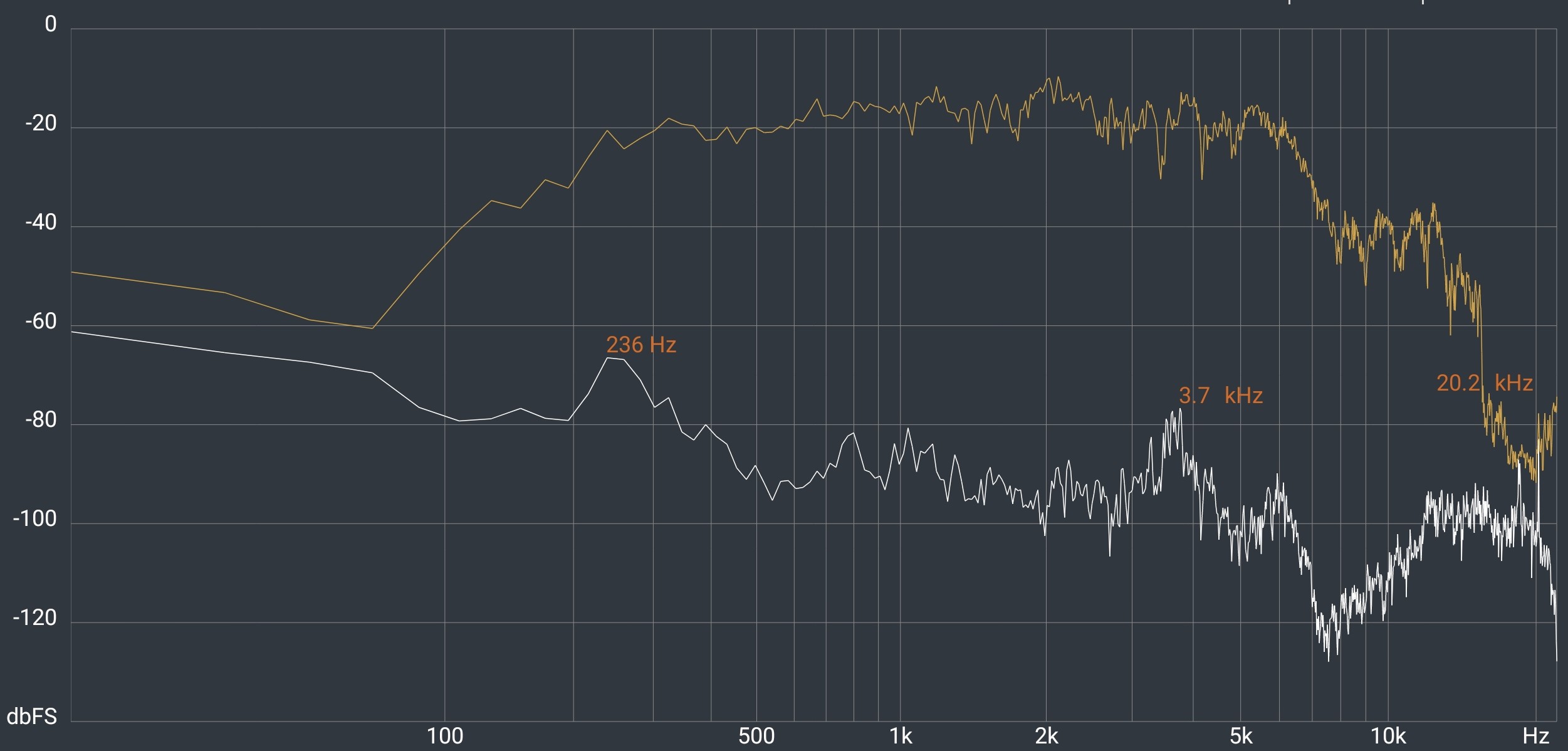
| Deep Bass 20-40Hz | Nil |
| Middle Bass 40-100Hz | Starting at 90Hz and building linearly to 200Hz so has little benefit. |
| High Bass 100-200Hz | Building |
| Low Mid 200-400Hz | Flattening |
| Mid 400-1000Hz | Flattening |
| High-Mid 1-2kHz | Flat |
| Low Treble 2-4kHz | Flat |
| Mid Treble 4-6kHz | Flat |
| High Treble 6-10kHz | Lineal decline to 20kHz |
| Dog Whistle 10-20kHz | Lineal decline to 20kHz |
| Sound Signature type | This is a mid-signature (bass recessed, mid-boosted, treble recessed) for a clear voice. However, it is not easy listening as it lacks bass (low notes are muddy or absent), and the high treble is choppy and harsh. |
| Soundstage | A well-balanced earpiece and bottom speaker provide good left/right separation. DA content (you must select the Spatial Audio preset) widens the sound stage by about 10cm and gives it some 3D height so you can hear sound object movement. |
| Comment | The sound signature is average, helped with a little high bass. Use headphones |
Build – Pass+
It is svelte and light, with a good in-hand feel. It has minimal bezels, and the vegan leather back resists fingerprints. Add a 2-year warranty, and this is a keeper. The Italian Mother of Pearl version will certainly appeal to the fashion- and trend-conscious.
The only issue is that it does not declare if the screen has toughened glass protection. For the longest life, I would buy some TPU screen protectors and use the bumper case.

| Size (H X W x D) | 161.23 x 72.4 x 8.19mm |
| Weight grams | 186 |
| Front glass | Curved 3D glass with anti-fingerprint coating |
| Rear material | Curved vegan leather or pearl polymer finish |
| Frame | Sandblasted aluminium colour-matched |
| IP rating | 68 – Liquid damage not covered under warranty 30 minutes at 1.5m |
| Colours | Black Beauty Vegan Moonlight Pearl – real pearl shell Luxe Lavender Vegan |
| Pen, Stylus support | No |
| In the box | |
| Charger | 125W TurboPower |
| USB cable | USB-C to USB-C 5W cable |
| Buds | No |
| Bumper cover | Yes |
| Comment | It comes with a charger in the box (Samsung does not) and a clear bumper cover. It is well-made. |
OS – Pass+
This is excellent. It includes Android 14 and three OS upgrades to 17, four years of quarterly security updates, and a two-year warranty.
Motorola has swapped from its My UX overlay on Android to a Hello UX (Hello Moto adds value to Android) and separate Moto Apps that can be easily updated. Otherwise, it is a light touch over Android.
| Android | Android 14 |
| Security patch date | 1 March 2024 |
| UI | Now Hello UX. |
| OS upgrade policy | 3 |
| Security patch policy | Quarterly for four years |
| Bloatware | Pure Android – all Google Apps. You can uninstall Facebook. |
| Other | Google Photos is now the default, meaning AI tools such as Magic Editor (10 free monthly uses), Magic Eraser, Photo Unblur and more. |
| Comment | My UX seems to have gone but the functionality lives on. Moto Apps now manages most Moto features and enables simple updates. Family Space, Games, Moto Connect, Moto Secure, Moto Unplugged, Moto Ready For. Display: Peek Display, Attentive Display Gestures: Quick capture, Fast flashlight, Three-finger screenshot, Lift to unlock, Flip for DND, Pick up to silence, Swipe to split |
| Security | |
| Fingerprint sensor location, type | Optical |
| Face ID | Yes 2D only |
| Other | Lenovo ThinkShield is more for enterprise use. |
| Comment | Moto Secure – Manage network security, control app permissions, and even create a secret folder for your most sensitive data. |
Privacy – Passable
The 11,710-word policies are at the end, and we remind you that these are in addition to Google Android policies – read, Can you trust Google? Yes, but it depends on your definition. If you are privacy conscious, we advise using Google Apps where possible and avoiding Motorola sign-on and experiences.
You can still use the phone without signing up to Motorola and adjust privacy settings, so we will classify the privacy policy and terms and conditions as benign.
In addition, you can turn off advertising and other data-gathering tools.


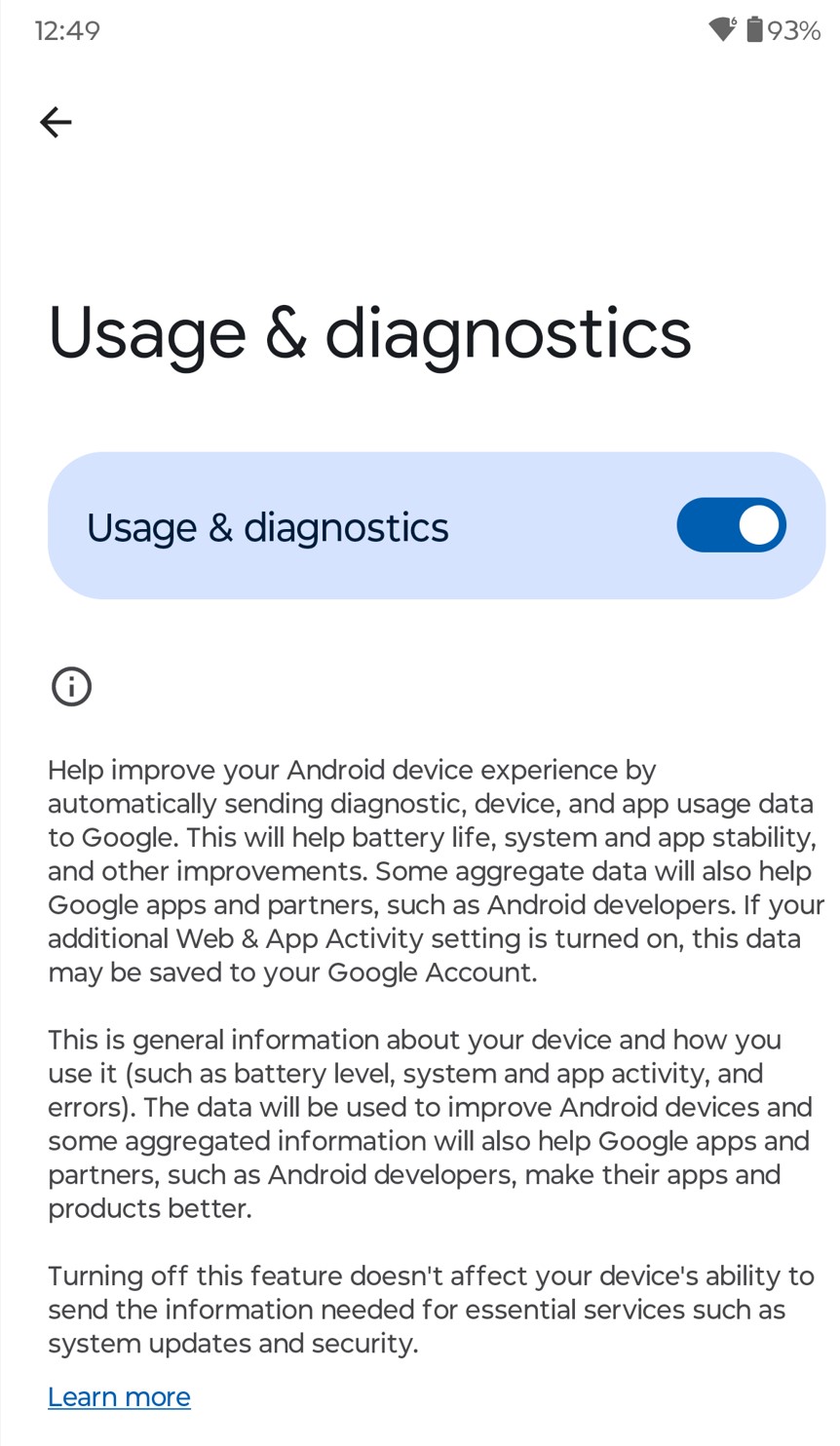
Motorola Edge 50 Pro rear camera
The star of the show. It is a useful tri-camera setup with a 50MP primary OIS (bins to 12.6MP), 13MP Ultra-wide angle and macro, and a 10MP OIS 3X optical, 30X Digital zoom (not a periscope as in the Edge 50 Ultra). The three sensors also work together to enhance the 30X SuperZoom (although we think 20X is more the limit).

It does not have a depth sensor (2MP) but uses a more sophisticated Time of Flight (ToF) laser sensor to measure distance to about 3-6 metres.
In terms of image quality, it is ahead of its class competitors. It has fast auto-focus, a bright F/1.4 aperture, excellent colour, a good screen preview colour match, good depth of field, substantial HDR details in shadow and highlights, excellent OIS, and superb low-light performance. This is largely due to the AI Photo Enhancement Engine, which uses post-processing and binning, making this an excellent point-and-shoot camera with no expertise required.
Video is also good, and you can shoot 4K@30fps with OIS. Again, we had better results with 1080p@30 or 60fps and both IOIS and Qualcomm EIS.
We don’t publish Selfies due to the increased possibility of ID Theft. Selfies are excellent because they have auto-focus (most selfies are fixed-focus) and a good depth of field.
Motorola Edge 50 Pro photo samples












Motorola Edge 50 Pro Rear camera specs
| Rear 1 | Primary |
| MP | 50.3MP bins to 12.6MP |
| Sensor | Omnivision OV50E |
| Focus | PDAF Omni Directional |
| f-stop | 1.4 |
| um | 1 bins to 2 |
| FOV° (stated, actual) | 70.2 (H) x 82.7 (D) |
| Stabilisation | OIS |
| Zoom | Up to 20x digital crop factor 4.2 |
| Rear 2 | Ultra-wide and Macro |
| MP | 13MP |
| Sensor | Hynix HI1336 |
| Focus | AF/Fixed Macro from 3-5cm |
| f-stop | 2.2 |
| um | 1.12 |
| FOV (stated, actual) | 120 |
| Stabilisation | No |
| Zoom | No |
| Rear 3 | Telephoto |
| MP | 10MP |
| Sensor | Samsung S5K3K1 |
| Focus | AF |
| f-stop | 2 |
| um | 1 |
| FOV (stated, actual) | |
| Stabilisation | OIS |
| Zoom | 3X Optical and 30X hybrid Laser autofocus (time-of-flight); 3-in-1 Sensor (exposure, auto white balance, flicker) |
| Special | Artificial intelligence: Photo Enhancement Engine Auto Smile Capture Gesture Capture Google Lens™ integration Shot Optimisation Smart high resolution Style Sync |
| Video max | 4K@30fps |
| Flash | Yes |
| Auto-HDR | Yes |
| VIDEO Software Shooting modes: Slow Motion Night Vision Timelapse (w/ Hyperlapse) Dual Capture Macro Spot Colour Other features: Adaptive Stabilisation Horizon Lock Auto Focus Tracking Digital Zoom: 20x Video Snapshot HDR Audio Zoom Selfie Stick Support External Microphone Support | |
| QR code reader | Via Google Lens |
| Night mode | AI |
Motorola Edge 50 Pro Selfie spec
| Front | Selfie |
| MP | 50MP bins to 12.5MP |
| Sensor | Samsung S5KJNS |
| Focus | PDAF Autofocus – most selfie cameras are fixed focus |
| f-stop | 1.9 |
| um | .64 bins to 1.28 |
| FOV (stated, actual) | 78 (H) x 90.7 (D) |
| Stabilisation | EIS |
| Flash | Screen fill |
| Zoom | No |
| Video max | 4K@30fps |
| Features | Shooting modes: Portrait (w/ Group Selfie & Smart Adjustments) Photo Booth Pro Dual Capture Spot Colour Artificial intelligence: Photo Enhancement Engine Auto Smile Capture Gesture Capture Google Photos Auto Enhance Other features: Burst Shot Timer Assistive Grid Leveller Metering Mode Watermark Live Filters Selfie Photo Mirror Selfie Stick Support RAW Photo Output HDR Quick Capture (twist-twist) |
| Comment | Excellent point-and-shoot camera, producing above-average results in this class. |
CyberShack’s view – Motorola Edge 50 Pro is an excellent upper-mid-range smartphone
As I stated at the beginning, Motorola should sell truckloads of these. Price may be an issue, so keep your eyes peeled for some Black Friday specials—around $800 it would be the best.
I have not seen the Edge 50 Fusion yet, but it also looks like an excellent smartphone with few compromises. I hope the Edge 50 Ultra comes here, as it will be the only serious competitor to the Samsung S24 and S24+ with the Exynos SoC.
Motorola’s competition is from its excellent $999 ThinkPhone, which is more powerful, has an Aramid rugged case (think Kevlar) and has a pretty good camera. It was my pick as the best of 2023.
Ratings
| Ratings | 70+ is a Pass Mark. |
| Features | 85 |
| It has every feature you could need and some AI as well. | |
| Value | 85 |
| At $999, it is a reasonable value, but the Motorola ThinkPhone and Nothing Phone 2 have an SD8 Gen 1 and good cameras. The Samsung S23 FE has an Exynos processor and inferior phone signal strength. Similarly, the Google Pixel 8a has a Tensor G3 (Exynos 2400) with lower signal strength. | |
| Performance | 85 |
| The SD7 Gen 3 is not as powerful as expected, but it is more than fit for purpose. You notice the difference if you are using an SD8 series phone. | |
| Ease of Use | 85 |
| 2+2+3 warranty/OS/security patch and excellent Hello UX overlay adds useful features to pure Android. | |
| Design | 85 |
| Curved-edge screens have lost popularity and can lead to edge press errors. No screen protection is specified, which is unusual as it is specified for the Edge 50 Fusion and Ultra. | |
| Rating out of 10 | 85 |
| Final comment | It’s one of the best all-rounders. I don’t like to comment on the price, but it’s a tad over the mark for an SD7 Gen 3. |
| Pro | |
| 1 | Best pOLED screen in class |
| 2 | Excellent battery life, 125W/22-minute charge, and Qi wireless charge. |
| 3 | Excellent camera, only lacking the Periscope of the Edge 50 Ultra. |
| 4 | Very well made, IP68, USB-C 3.1 with Alt DP and comes with a charger. |
| 5 | Excellent 2-2+3 warranty/OS upgrades/security patches |
| Con | |
| 1 | The jury is out on vegan leather durability, so use the clear bumper cover. |
| 2 | Would not connect to 6GHz Wi-Fi. |
| 3 | No micro-SD (no flagship has this anyway). |
| 4 | Speaker sound could be improved. |
| 5 |
Motorola Edge 50 Pro Privacy and Terms and Conditons
CyberShack Verdict
Motorola Edge 50 Pro, 12/256GB, Dual SIM, Model XT2403-2
$999




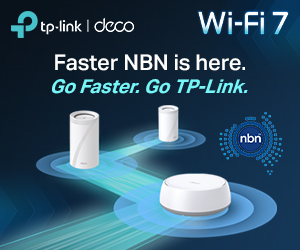

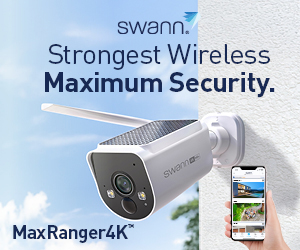


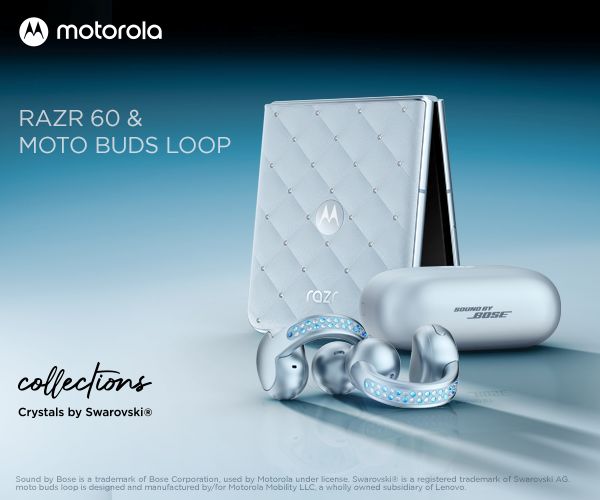


1 comment